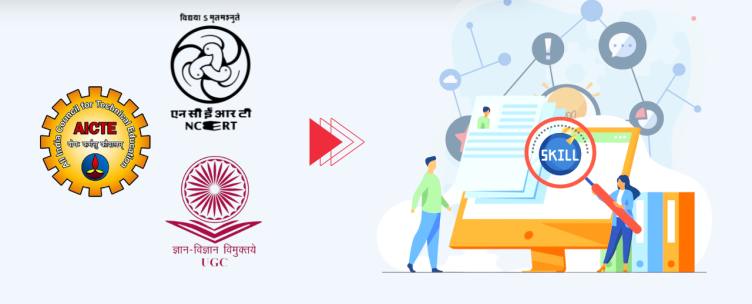UGC, AICTE, NCERT to Join Hands for Framework for Mapping Skills: MoE
This framework will help ensure that education and training programs align with the skills needed in various industries and sectors, thus reducing the skills gap and increasing employability. The minister made the comments in an interaction with reporters ahead of the third G-20 Education Working Group Meeting where the priority areas for deliberations were tech-enabled learning, the future of work, and research collaborations among others.
Why is a Framework for Mapping Skills Necessary?
Currently, there is a huge mismatch between the practical skills taught in educational institutions and those required by employers in the corporate landscape. This skills gap not only affects job prospects but also results in the underutilization of the available talent pool. Hence, the need for a framework for mapping skills arises, which can effectively reconcile this gap by aligning education and training programs with the skill sets that various industries demand.
The Role of UGC, AICTE, and NCERT in Creating Framework
The UGC, AICTE, and NCERT are the three major regulatory bodies in the education sector. The UGC is responsible for regulating universities and colleges in the country, while the AICTE oversees technical education institutions. The NCERT is responsible for developing curricula and instructional materials for school education.
By working together, these regulatory bodies can create a comprehensive framework that covers all levels of education, from school to higher education. The framework can be designed to identify the skills required in different sectors and industries, and then map them to the corresponding education and training programs. This will help ensure that students are equipped with the necessary skills and knowledge to succeed in their chosen fields.
This collaborative effort is all set to lead to a more skilled and productive workforce, contributing to the growth and development of the country.
All in all, the Ministry of Education's call for UGC, AICTE, and NCERT to join hands in creating a framework for mapping skills is a step in the right direction. By aligning education and training programs with industry requirements, the skills gap can be reduced, employability can be improved, and the vast talent pool of our country can be better utilized. On an optimistic front, this collaborative effort is all set to lead to a more skilled and productive workforce, contributing to the growth and development of the country.
